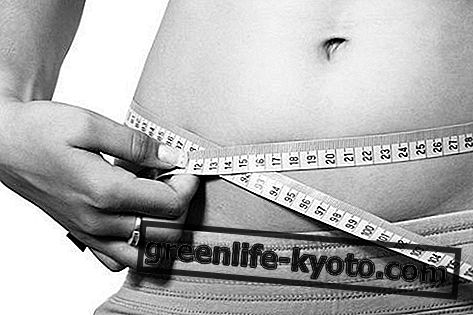
The term "menopause" is generally used to indicate that period that coincides with the permanent cessation of menstruation, consequent to the exhaustion of the normal activity of the follicles (structures containing the egg cell) in the female ovaries. The most appropriate term to indicate the phase of definitive exhaustion of the ovarian follicular activity (linked to the menstrual cycles) is that of "post-menopause", a very important physiological condition considering that it occupies about one third of the life in a woman. It follows the climacteric or perimenopause phase, which refers to that period, of variable duration from several months to years, characterized by remarkable instability of the quality and quantity of menstrual cycles, during which the various disorders typical of this phase begin to manifest themselves of a woman's life.
The average age at which menopause occurs is 50.7 years, but this age may differ from woman to woman: in the vast majority of cases, however, menopause occurs between the 45th and 55th years of age . Smoking is a factor that can lower the age of onset of menopause; the percentage of menopausal women is higher among smokers and the average age of onset for these women drops to 47.8 years. The WHO (World Health Organization) indicates that the average global life expectancy on earth was 55 years in 1974, 63 years in 2000 and at least 70 years in 2025. In that year, about 20% of the World population will be over 65 years old. Therefore the long-term consequences of estrogen deficiency in an aging female population will be a challenge for medicine worldwide. Although menopause should be considered as a physiological (normal) condition rather than as a disease in its own right, it is evident that the hormonal changes that characterize the post-menopausal period determine a series of very important clinical problems, such as osteoporosis and Cardiovascular diseases on an arteriosclerotic basis.
In women over 51, the risk of cardiovascular events compared to the pre-menopausal period rose sharply; this differs from man, in which the increase in the number of events has a constant progression with age, reflecting the role of an important predisposing factor played by menopause. A similar surge, characteristic of post-menopause, concerns some of the cardiovascular risk factors such as high blood pressure, increased levels of cholesterol and triglycerides in the blood, overweight and hyperglycemia. It is not just the end of the cycle. Sex hormones, and mainly estrogens, in addition to regulating the menstrual cycle, intervene at different levels on the woman's body; they influence the sexual organs, the psyche, the brain, even the skin and mucous membranes: this is why, during climacteric, a series of disorders can appear that affect different parts of the body. The first thing to consider when talking about "menopause" is that every woman has her own: disorders and feelings will be different for each one. There will be those who will not even notice the changes that are occurring, while some will have more or less annoying problems that can be eliminated or mitigated. In this phase of life, the dialogue with the specialist Gynecologist will be very important, to define the tricks and the possible therapies to follow in order to better live a phase of life in which there is still much to live and to discover.
Frequency of the main disturbances in climacteric:
- Weight gain (60%)
- Hot flashes (55%)
- Fatigability (43%)
- Nervousness (41%)
- Profuse sweating (39%)
- Migraine (38%)
- Insomnia (32%)
- Depression (30%)
Hot flashes are the most classic menopausal disorder: they affect about 80% of women, last on average for a couple of years, but in 25% of cases they can persist for more than 5 years. Hot flushes, or vasomotor flushes, manifest with a feeling of intense heat that runs through the whole body like a wave, lasts from 30 seconds to 2 minutes and usually ends with cold sweats. They are preferably located in the face, neck and region of the sternum. The frequency can be up to 15-20 per day. Hot flushes can appear several times during the day and even at night, disturbing sleep and therefore causing insomnia. Sometimes, along with hot flashes, palpitations may appear, linked to a temporary increase in heart rate. Hot flashes are not a worrying phenomenon, but they can be very annoying and cause a sense of irritation in those who suffer from it. Especially when sleep is also disturbed, they can cause fatigue and nervousness, sometimes associated with a deterioration in quality of life with socio-professional discomfort. In some women the alterations in the function of blood vessels at the base of hot flushes can also cause migraines, which can also appear in menopause, without the woman ever having suffered in the past.
The estrogens, during fertile life, "protect" the tissues of the genital and urinary tract: when this protection is lacking, here are the first disorders, which can affect both the genital and urinary systems. At the level of the genital apparatus, burning and itching may appear and vaginal infections may be more frequent. Even sexual intercourse can become more difficult: the reduction of vaginal secretions, with poor local lubrication and dryness, can make the relationship with one's partner (dyspareunia) painful. At urinary level, burns and cystitis may appear, with an increased urge to urinate. Some menopausal women suffer from "stress incontinence": in particular situations (coughing, sneezing, physical exertion) involuntary leakage of urine occurs. This disorder is linked to a weakening of the tissues of the urethra, that is, of the duct that carries urine from the bladder to the outside.
The lack of estrogen provides the biochemical basis for a possible development of postmenopausal depression, probably facilitated by the reduced production of serotonin (a substance that in the brain helps to maintain a high mood), which is observed in this period of woman's life. Even anxiety, mood swings, nervous tension, and crying easily can be very common in this period and are also linked to the reduction of hormonal levels that is occurring in the body. To this, then, we can also add psychologically "difficult" situations in the family and at work: the children go away, misunderstandings can be created with the partner, also linked to the new phase of life, work can become heavier. It is important to know that the malaise that has arisen is linked to menopause and that there are many alternatives to overcome it in a short time.
The real problems at the beginning do not cause problems.
Osteoporosis and cardiovascular diseases (diseases of the heart and arteries) are the real problems related to hormonal deficiency: since at the beginning, normally, they do not give symptoms, they are not taken into consideration with due care. The hormonal drop that occurs with menopause negatively affects the amount of calcium that is fixed in the bones, which, by reducing, creates an imbalance in the bone mass, which loses its compactness: deformations of the bone structures and fractures can thus be verified . The problem of cardiovascular diseases is instead linked to a protection that is lacking: in fact, during the fertile life, estrogens protect the woman from the risk of suffering from these diseases. With the lack of estrogen that occurs in menopause there is no longer this protection and therefore increases the risk of getting a heart attack, stroke and disorders related to poor circulation in the lower limbs. Precisely because of these two "hidden" problems, even in the absence of any real problems, it is still important after the age of fifty to go to the Gynecologist to plan together with him the necessary controls to prevent these diseases.
A valid option to treat the symptoms of menopause is represented by Acupuncture, the most important therapeutic method of Traditional Chinese Medicine (TCM). It is a non-pharmacological therapy (of exclusively medical competence) with a solid scientific basis, which makes use of the insertion of metal needles - obviously sterile and better if disposable - in certain points of the human body, in order to promote health and well-being of the human body. 'individual. Acupuncture treatment is almost free of side effects, as has been ascertained, and recognized in 1997 by the WHO. In the context of menopause, this "Alternative" Medicine, of very ancient origins, has proved to be valid for treating some symptoms induced by the hormonal modifications of this phase of the woman's life: estrogen levels are lowered and those of gonadotropins are increased (LH and FSH).
Studies in the field show that acupuncture increases estrogen levels and reduces LH levels; moreover, the production of endorphins increases, with a consequent reduction in the intensity of hot flushes. It therefore stabilizes the control of body temperature. A session every four weeks guarantees a lasting effect of the benefits over time.













